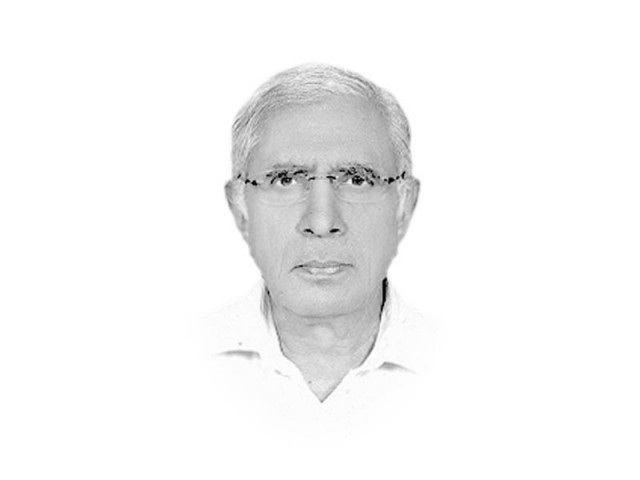Inside Indian-held Kashmir
PDP and the BJP are expected to continue to reach a compromise but the chances of consummation appear very remote

The writer served as Executive Editor of The Express Tribune from 2009 to 2014
India rules IHK through Article 370 of its constitution, according to which, save for defence, foreign affairs, finance and communications, the Indian parliament needs the concurrence of the state for applying all other laws. Even for the removal of this temporary provision from the constitution the concurrence of the state assembly is essential. But even the assemblies brought in through rigged elections had successively failed to help.
Instead, an indigenous intifada was launched in protest against what was seen by the people of IHK as induced deprivation and forced dispossession. The centre sent in the army to put down the peaceful protests. But the clashes between the army and the unarmed people did not take long to turn into a full-fledged freedom struggle. It was at about this time that Pakistan committed the historic blunder of sending in trained and fully-armed non-state actors — the remnants of jihadists from the first Afghan war — to speed up what it thought was the final round of the freedom struggle.
All through the Cold War, what was happening in the IHK was being recognised, in most world capitals, as a legitimate struggle for independence. Even a large part of influential Indian media was finding it increasingly difficult to support New Delhi’s high-handed policies vis-à-vis IHK. In fact, a number of national dailies were found carrying detailed reports of atrocities being perpetrated by the Indian security forces in the IHK. However, the bloody rampage that was let loose by our infiltrating ‘Mujahids’ in the valley and Jammu caused the support the intifada had mobilised within India as well as outside to fade away gradually. And after the Kargil misadventure when we publicly acknowledged involvement of our non-state actors in the on-going bloodshed in the IHK, we had seemingly succeeded in reducing a six-decade-long freedom struggle into a terrorist adventure in the eyes of the world.
With the freedom struggle inside the IHK having seemingly lost its lustre in the eyes of the world, the BJP, the Indian ruling party, seems to believe the time was ripe to try to do away with Article 370. Indeed, with 25 seats in a House of 67, the BJP perhaps believes it is but a few steps away from its cherished goal. But the five pre-conditions that the Peoples Democratic Party (PDP), the party leading with 28 seats, has put forward for accepting the BJP into a coalition government seem to have made what had looked so near almost impossible to reach: 1) dialogue with Pakistan 2) dialogue with the Hurriyat 3) that the BJP maintain the status quo on Article 370 4) withdrawal of the Armed Forced Special Powers Act from certain regions 5) and return of the power projects. The fifth precondition envisages re-establishment of Kashmir’s ownership over its rivers which have been divided up between India and Pakistan under the Indus Waters Treaty. Similarly, IHK wants India to hand over the power houses it had built on the Jhelum and the Chenab from which at the moment Kashmiris get only 12 per cent of royalties and no electricity. So, on the face of it, New Delhi seems to be still far away from resolving its Kashmir problem as it was in 1948. Both the PDP and the BJP are expected to continue to reach a compromise but the chances of consummation appear very remote.
Published in The Express Tribune, February 25th, 2015.
Like Opinion & Editorial on Facebook, follow @ETOpEd on Twitter to receive all updates on all our daily pieces.














COMMENTS
Comments are moderated and generally will be posted if they are on-topic and not abusive.
For more information, please see our Comments FAQ